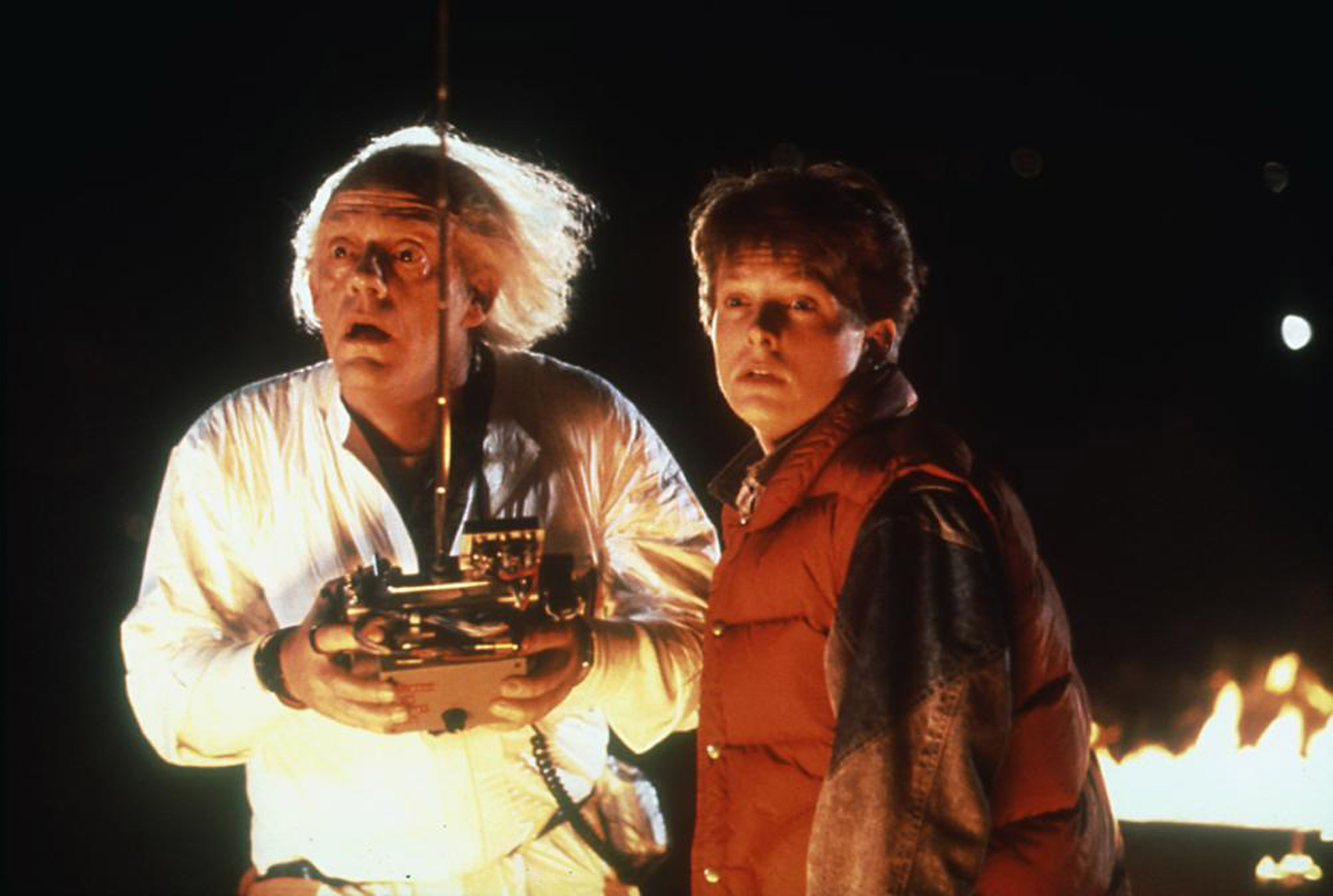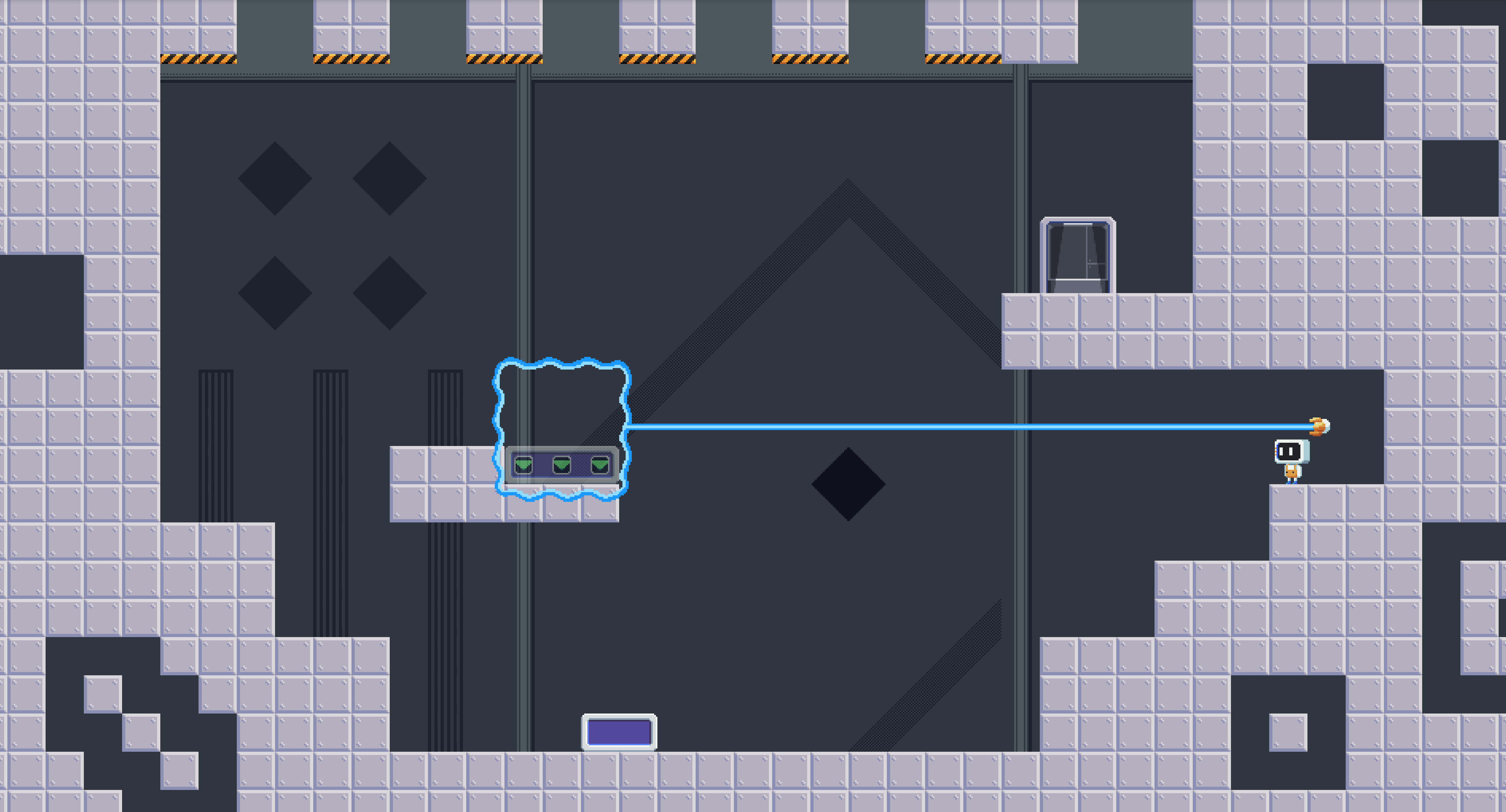What do game designers and mathematicians have in common?
I can say without reservation that many of the games I make are a love letter to games I've played in the past and other creators who have inspired me to explore new ideas. Of those people, perhaps nobody else has been more influential than Jonathan Blow.
Roughly six years ago, I was trying to figure out what new products I wanted to make. I knew I enjoyed puzzle games, especially games like Portal, but I didn't have a set of guiding principles I could use to make games that do the thing I think makes games most interesting.
Sure, I had plenty of seemingly good ideas. But when it came to executing on them, I often found myself making game prototypes that were superficially interesting yet ultimately lacking in deep "real" gameplay.
The "interesting story" game design trap
For example, my very first game prototype was a 2D platformer about a guy who could travel back in time. However, there was a catch. He couldn't interfere with his past self and screw up the timeline.
That's an interesting story. I didn't like how in Back To The Future, they run around screwing up the timeline with no consequences. When I was fourteen, a friend of mine pointed out that if they could travel back in time, they could prevent themselves from going back in time by killing their own grandfather, and this just totally blew my mind back then because it meant the fully grown adults who made that movie were wrong!
Anyway, my "game" had "puzzles" where you needed to travel back in time to the point where, say, an elevator was at the ground floor. Then you would ride it up to the top floor while watching your past self go into the time portal and cause the sequence of events that led you to riding the elevator upwards in the present moment.

The idea this game was based on, the grandfather paradox, is an interesting idea for a science fiction novel, but it's a terrible idea for a 2D platformer. To comprehend why, you have to understand that games are fundamentally about agency, or the ability to make interesting choices which have an important and visible consequence.
It is as Will Wright has said in the promo video for his master class on game design. As soon as you remove player agency, that's like the screen going black at the movie theater. There's nothing for the player to do, nothing to explore.
A tightly constrained game about the grandfather paradox is an objectively bad idea because it does not offer the player any interesting choices.
It is deterministic by nature. You have to go back in time because future you is in the present, and if you prevent past you from going back in time, you prevent the present from happening, and this cannot be allowed.
Well then, what can be allowed? Only the events which make the current timeline, the timeline which must exist, happen. By definition there can't be any player agency. Player agency is considered a failure state.
This is why movies like Back To The Future can't be 100% scientifically accurate. If they were, it would totally destroy your engagement with the story. There wouldn't be anything interesting to do, no problems for the hero to solve. You already know how the movie is going to end, and the people making it aren't even trying to pretend you don't. They might as well turn off the projector and send you home.
How to make games which are deeply interesting
I think quite a few people who are just getting started with game design tend to fall into a trap that is similar to the one I fell into, making games about interesting stories they read or ideas from science fiction and fantasy without evaluating whether those ideas translate into interesting gameplay.
You can guess what happens next. You pursue the idea (hopefully inexpensively), make prototypes that aren't very interesting to play, show them to your friends, they get confused and frustrated, and then you feel all sorts of negative emotions and wonder if game design is something worth pursuing.
This is the point in the story where a younger version of myself came into contact with the work of Jonathan Blow via the YouTube algorithm.
Jonathan Blow has some famously insightful and practical lectures on game design and programming which are surprisingly not viewed nearly as much as they ought to be.
Seriously, don't even read this article. You can if you want to understand my story a little better, but if you really want to learn about game design, especially for puzzle games, this lecture is foundational. It should be taught in every game design class.
In the lecture, Jon talks about how games, at the core, are about systems of rules and the way those systems create emergent possibilities. He makes the case that a good game idea is one where you get more out of it than you put in.
I want you to meditate on that because it's the sort of statement you can hear a few times without really understanding. Perhaps it may take practice with game design for that idea to sink in, but it's very much at the heart of what makes great games great and bad games bad.
Games, like mathematics, are about a possibility space, or a set of truths which follow from some arbitrary set of rules. 2D geometry is about what happens, or what is true, when you arbitrarily define space as two orthogonal axes given the designations X and Y. All of those pesky things they tested you on in high school, things like trigonometry, are the consequence of following those rules to their logical conclusion.
As a game designer, you come up with an arbitrary set of rules and you enforce those rules either socially or with instructions running on computer hardware. The rules determine what is possible, what is permitted, and what is not.
Interesting game ideas have a property where the original set of rules is small but the resulting possibility space is large and rich. In other words, you get more out of them than you put in.
I have aimed for this very thing when designing Cove Kid. I wanted a set of rules which are fun to play around with, but when taken seriously and followed to their logical conclusion, allow for a wealth of interesting situations and conundrums.
Good games are not designed. They are discovered.
I do not force the puzzle ideas to happen. In a sense, and as Jonathan Blow points out in his lecture, I merely "discover" the puzzles by following the trail that the rules of my own game sets out in front of me.
My job, as a game designer, developer, and business person, is to curate those discoveries and put them in front of you, the player, in an aesthetically pleasing manner so you can enjoy the journey I've been on for the last six months.
A friend of mine, Charley Honeycutt (also the game's sound producer), described it as playing twenty five levels with twenty five mechanics.
There is certainly a negative interpretation of that description. You don't want a game that introduces new gameplay elements arbitrarily. That sort of game lacks cohesion and suffers from a problem where the designer has to keep coming up with heaps upon heaps of explanations for each new rule that is brought into each level.
What you want is a game with a simple set of rules, a game that seems to keep inventing "new mechanics" by making the player use those rules in new and interesting ways.

Each puzzle then forces the player to recognize that she can use the existing rules this way, and in the process of having this realization, she sees a beautiful kind of truth that was already there from the beginning.
Cove Kid is my first genuine attempt at creating a game that does this. Every "game" I've made prior to this one wasn't made with these principles in mind, and because they weren't made with a true understanding of what makes games interesting, I often found it very difficult to come up with new levels or puzzles.
Back when I was struggling with that stupid time travel paradox game, I found myself having to write gobs of code just to create a new level.
Why? Because the existing set of rules wasn't rich enough to allow for a natural possibility space with interesting puzzles I could simply curate and present. I had to keep creating new rules to create new gameplay.
So here's a valuable gem for anyone just learning game design. Even if you take nothing else away from reading this article, pay attention to what I am about to say.
If your game idea is such that you find it difficult to come up with a new level or puzzle without writing a ton of extra code, that's a sign you might not have a good game idea.
It isn't always true, and many systems in games take quite a lot of code to implement properly, but once you have a few of these systems in place, it ought to be easy to discover new and interesting ways the rules can be combined to create puzzling situations.
You won't "discover" all of the puzzles right away, but you will wake up inspired by a puzzle idea that hit you at 4:30 A.M., and you will rush to your level editor to bang out the core idea before the inspiration perishes. And you will be able to get the idea out because the rules of your game already allow for it.
You just hadn't thought of that particular scenario yet.
Get Cove Kid
Cove Kid
Nineteen years later, a robot boots up and its strange new powers uncover a hidden world beneath the rubble.
More posts
- Cove Kid Demo Now Available On WindowsOct 01, 2021
- Cove Kid's Shader (Metal / Mac OS)Jul 07, 2021
- Bug Fix: Audio EngineJun 16, 2021
- The future of Cove Kid. Design direction and next steps.Jun 10, 2021
- Animation changes, level design improvementsJun 08, 2021
- Improved Camera Build AvailableJun 03, 2021
- Improvements to the camera systemJun 02, 2021
- Cove Kid Alpha 2 Now AvailableMay 27, 2021
Leave a comment
Log in with itch.io to leave a comment.